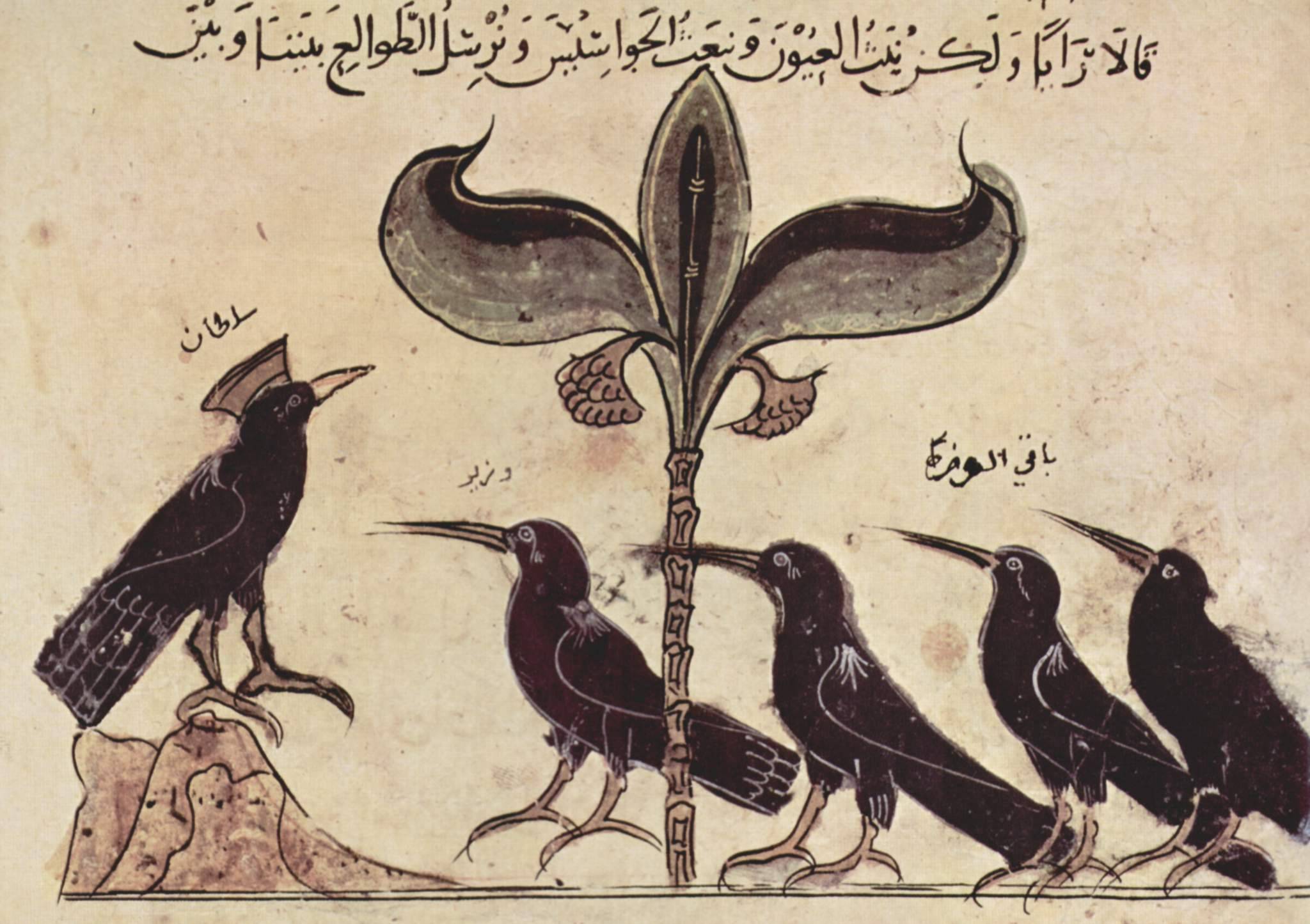Kalila wa Dimna: a remedy for ignorance
Kalila wa Dimna (Sanskrit: Panchatantra) is one of the most popular books - and most translated works - ever written. The book was originally written in Sanskrit language in 200 BCE India and was based on older oral tradition. The animals in the book are allegorical characters where each group of animals represent a level of society, allowing the narrator to issue political and social criticisms and guidance.

Kalila wa Dimna came to West-Asia at the hands of the Persian physician Borzouyeh, who in the mid-sixth century travelled to India to find an elixer that would revive the dead. He read that on a mountain in India there grows a plant which when sprinkled over the dead revives them. After a fruitless search, he was led to an ascetic who revealed him that the "plant" was word, the "mountain" learning, and the "dead" the ignorant. The remedy of ignorance turned out to be the book ‘Kalila wa Dimna’. Borzouyeh was allowed by the king of India to read the book, with the condition not to copy it. He accepted the condition but each day memorized a chapter of the book and recorded it afterwards, thus secretly creating a copy.
One day Borzouyeh submitted to the king a letter in which he mentioned that he found in the books of the sages that in the land of the Indians there are mountains on which shrubs and different kinds of plants grow, such that if they are recognized, and gathered, and blended, then one could extract from these plants a medicine with which the dead are brought to life. He asked the king to allow him to search for them and to aid him by giving him the money necessary for this undertaking and to write letters on his behalf to every one of the kings of the Indians asking them to assist him in his task.
During his travel to India, Borzouyeh recognized that the medical profession’s knowledge is ultimately limited and in some cases even futile. It has the possibilities to cure disease but it can not revive a dead soul back to life, nor can it cure the disease of ignorance. His goal of finding a way to revive the dead had become a matter of wisdom. People should be treated with knowledge that makes them understand the harmonious development of the powers of man, to create a life in which security, prosperity, resolute action, friendship, and good learning are so combined to produce joy. In this way, with the use of the right knowledge, people can be guided to positively contribute to society. While today's knowledge-fabrication system is mainly centred in the West and revives around the West's representations of its non-Western others, the message Borzouyeh left us involves that we do not have to go far to find the right knowledge and remedies to our problems. Kalila wa Dimna was given as the recipe to liberation from the 'disease of ignorance', established through the connection of cultures inside Asia. It is one of the many narratives that arose from our lands, and if pursued generates an enlightenment-mobilized people in the third world to rise up and throw off imperialist subjection. Reviving and teaching such works will ultimately contribute to a society that asserts its own identity and the existence of its own history.
Though the original copy of Borzouyeh is lost, it was translated during Abbasid rule by Ibn al-Muqaffa in Basra before it disappeared. The Arabic copy was later translated to Syriac, Latin, Greek, and more languages. The book reached Europe during the Arab Empire of Spain in the 13th century.
